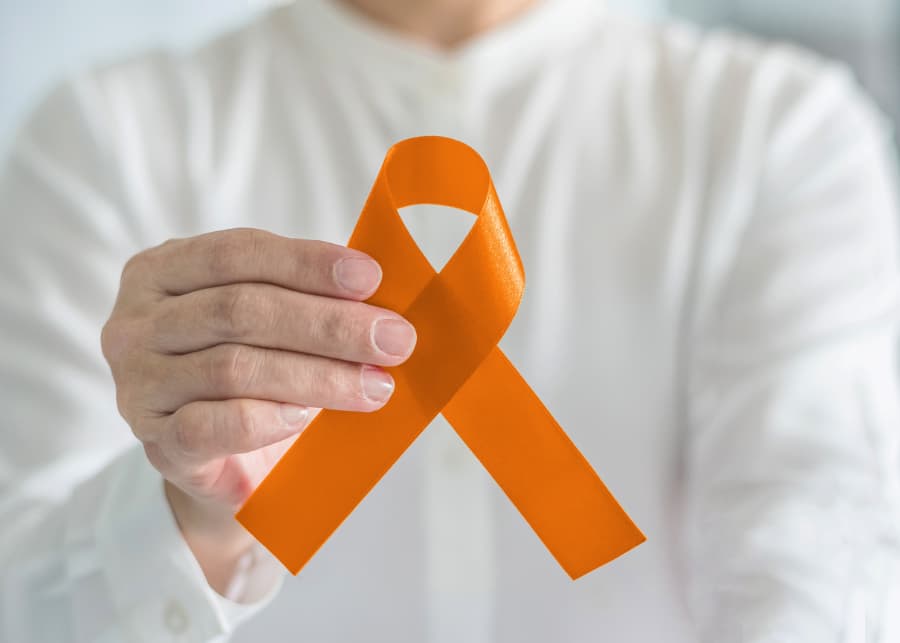
PSA: How a Simple Blood Test Can Detect Prostate Cancer
When it comes to cancer, early diagnosis is a person’s best defense. Cancer cannot always be prevented, but early detection offers the best opportunity for
HIPAA Alert: Potential Data Breach Learn More
Questions on Oncology, Hematology and/or Infusion Clinical Services due to COVID-19 Crisis – CALL 833-698-1623
Important Information for Our Patients Regarding the Coronavirus.
RCCA Providing Area Cancer Patients with Access to Care During Coronavirus Outbreak
RCCA Offering Patients Virtual Visits During Coronavirus Pandemic
The road to kidney cancer recovery looks different for every patient. At Regional Cancer Care Associates, our seasoned providers recognize these idiosyncrasies and develop personalized kidney cancer treatment plans to address them. Using a combination of state-of-the-art therapies and holistic care techniques, we help patients living throughout New Jersey and Connecticut lead fulfilling lives while battling cancer.
One of the most common forms of cancer treatment, chemotherapy involves using powerful drugs to attack and kill cancer cells. Often called “chemo,” our providers frequently use it to treat kidney cancer.

Our immune systems help fight off infections and other harmful diseases. Immunotherapy, a type of biological therapy, grasps onto this principle and uses substances made from living organisms to treat cancers, including kidney cancer. In this way, the immune system is “recruited” to help battle the cancer.
When targeted therapy is used to treat kidney cancer, its goal is to eliminate cancerous cells while preserving the normal, healthy cells that surround them. To accomplish this, some forms of targeted therapy block the actions of enzymes, proteins, and more. In some cases, this method can produce fewer side effects than other forms of cancer treatment.

Through the use of radiation therapy, oncologists can destroy or slow the growth of cancerous kidney cells with high-energy rays. Radiation therapy can be delivered externally, internally, or via radioactive drugs.
In some cases, clinical trials may offer promising treatment outcomes for patients with kidney cancer. These experimental trials are commonly used to compare an effective, known treatment for a particular type of cancer with a novel approach. These new treatments might be new drugs, a unique combination of drugs, or a different way of using an established therapy.
By genetically testing the DNA of kidney cancer cells, our care providers can learn more about the cells’ particular mutations. From there, they can develop more effective treatment plans based on each patient’s unique genetic makeup.
No matter what type of cancer a patient has, our palliative care services can help manage the negative side effects associated with the disease. To help patients maintain their quality of life, our physicians may facilitate the provision of social support, bereavement counseling, and more.
To deliver integrative care for kidney cancer, our clinical team provides a combination of conventional treatments and supportive therapies. While the conventional treatments attack the cancer, the supportive therapies mediate and combat side effects caused by the conventional treatments.
To support patients and further supplement their treatments, our team may also provide complete mind and body support. This can take the form of nutritional counseling, developing an appropriate exercise regimen, facilitating a patient’s participation in a yoga class, and more.
As kidney cancer is one of the most common cancer types in the United States, we’re driven to provide a wide enough range of treatment options to help as many patients as possible in Connecticut, and New Jersey. If you or a loved one is experiencing kidney cancer symptoms or is at an elevated risk of developing the disease, schedule an evaluation at Regional Cancer Care Associates today.

When it comes to cancer, early diagnosis is a person’s best defense. Cancer cannot always be prevented, but early detection offers the best opportunity for

While it’s normal for people to experience changes in their bowel movements from time to time, frequent or persistent discomfort or other symptoms can be

If you have dense breast tissue listed on your mammogram results, you may be wondering what it means. What makes some breasts denser than others,

Regional Cancer Care Associates is one of fewer than 200 medical practices in the country selected to participate in the Oncology Care Model (OCM); a recent Medicare initiative aimed at improving care coordination and access to and quality of care for Medicare beneficiaries undergoing chemotherapy treatment.